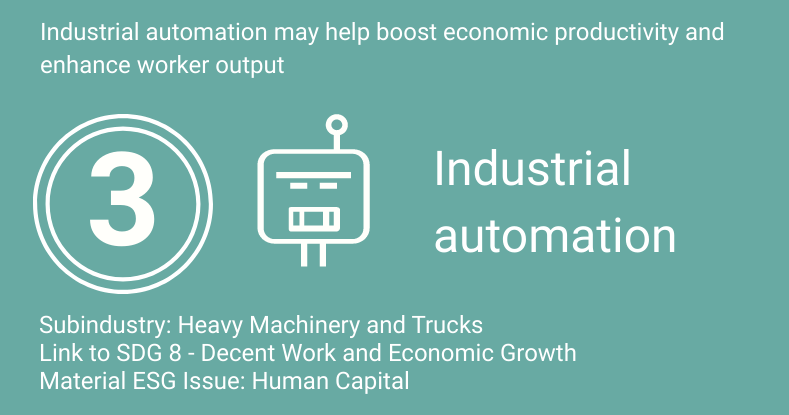Editor's note: Read the latest on how the coronavirus is rattling the markets and what you can do to navigate it.
Andrew Willis: With social distancing and lockdowns being the new normal, an army of workers immune to biological threats doesn’t seem like a bad idea.
Unlike man vs. machine situations where we’d ultimately lose a lot, industrial automation – or robots doing factory work… is something to look forward to. Visvesh Sridharan, Sam Goodyear and Megan Wallingford at Sustainalytics say that having robots in our lives can help both our economy and our workers, by not only providing improvements to efficiency, but also ensuring workplace safety, leaving workers safer and free to unlock new opportunities. Businesses that find a way to upskill their workforce can also find additional efficiencies and opportunities in product enhancement.
This win-win for worker and employer supports U.N. sustainable development goals and provides additional resilience to sustainable businesses that we’ve seen performing impressively throughout this crisis. With an estimated 630,000 industrial robots supplied by next year, the next challenge is the transition of human capital, which in itself is an ESG risk to watch out for. To invest sustainably, look for proactive enterprises, like British company CNH Industrial (CNHI), that has trained 70% of its 60,000 workers to prepare for industrial automation.
Look for businesses that are ambassadors in our new robot world, so that humans and machines can co-exist in peace.
For Morningstar, I’m Andrew Willis.

Passionate about investing in new ideas?
Explore the latest Global Thematic Fund Landscape report here






.jpg)












